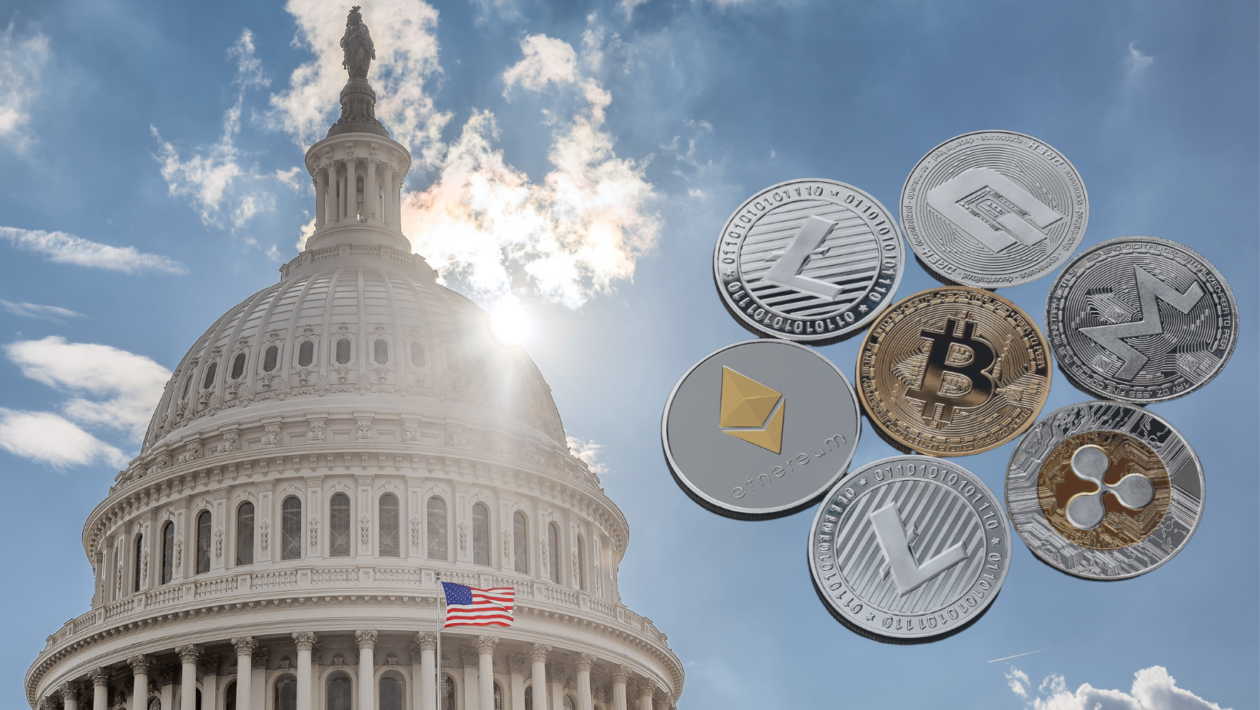The United States, a global leader in technology, is facing a crucial moment in the development and regulation of the cryptocurrency industry. The continued lack of regulatory clarity and high-profile meltdowns have been cited as reasons to freeze the industry out of banking services. The current approach to crypto regulation risks stifling progress and innovation and goes against historical precedents of supporting revolutionary technologies.
The industry is questioning why the U.S. has chosen an apprehensive approach rather than providing an open framework to foster and own the innovation that the sector promises. The blockchain industry is young and mobile, and should the U.S. continue down this path, the nation risks losing the talent and potential of this multi-trillion-dollar sector to more favorable jurisdictions.
Not all crypto is bad
The internet fundamentally changed how people share information. It also created an avenue for malicious parties to scam, hack and otherwise exploit others. Despite the immense amount of illegal activity conducted via the internet, the U.S. has supported growth in this space because it’s understood that the benefits of this new technology outweigh the harm.
Blockchain technology has only just begun to revolutionize how we share value with one another but is also not immune to scams and exploits. Recent regulatory actions have indiscriminately positioned legitimate businesses and criminal actors together, overlooking the fact that the crypto industry has attracted some of the brightest minds and has the potential to profoundly change countless sectors for the better.
In March 2023, the U.S. Securities and Exchange Commission (SEC) issued Coinbase with a Wells notice, recommending enforcement action. The SEC believes that Coinbase is offering securities, and yet is reluctant to provide any feedback or clarity. Coinbase is known for its strict regulatory compliance and is a leader in the U.S. digital assets space, but the SEC’s interactions have been uncooperative at best. Amid escalating tensions between the two, this week Coinbase asked a federal court to force the SEC to respond to a petition it filed last year asking for formal rulemaking within the digital assets sector — an action that is likely to drive even more of a wedge between the SEC and the nation’s largest crypto trading platform. The growing friction between the regulator and one of crypto’s biggest players is in stark contrast to the comparatively nurturing environment the U.S. fostered in the early days of development for firms like Apple and Microsoft.
Pioneers should be supported to help usher in the next era of leading business firms with the U.S. yet again at the forefront. The same has been done for other industries, such as technology and automobile companies, and the reluctance to exhibit the same support across the digital assets space is disappointing.
A look back at history
The current approach taken by the U.S. toward digital assets differs from historical precedents. By providing supportive regulatory environments and promoting innovation, the U.S. has become a global leader across many industries, including automotive, technology and renewable energies.
- Research funding
Numerous federal agencies have been established to support research and development initiatives across different industries. Two notable examples include:
- The National Science Foundation: Established in 1950, the NSF has contributed to the development of the internet, advanced manufacturing techniques, and renewable energy technologies. In 2021, its budget was about US$8.5 billion.
- The Defense Advanced Research Projects Agency: Established in 1958, DARPA played a crucial role in the development of GPS technology. Additionally, DARPA’s funding has contributed to the advancement of robotics, artificial intelligence and biotechnology, among other fields. In 2021, its budget was US$3.5 billion.
Countless examples exist, whether referring to renewable energies, space exploration, pharmaceuticals or more. The U.S. has continuously funded top-tier research to help lead the way.
- Tax incentives
Tax incentives are another critical tool the U.S. government has utilized to foster innovation across different industries. One such example is the federal R&D Tax Credit, which allows businesses to offset a portion of their research and development expenses against their tax liability. This credit has been particularly beneficial to technology and renewable energy companies, which often require significant investments in R&D to develop new products, services or solutions.
Additionally, the federal government’s provision of the Production Tax Credit and Investment Tax Credit has played a significant role in the growth of the renewable energy industry in the U.S.
- Intellectual property
The U.S. has a well-developed system to protect intellectual property that consists of patents, trademarks and copyrights, which provide inventors and businesses with exclusive rights to profit from their innovations for a specified period. The U.S. automobile industry, for instance, has greatly benefited from the country’s IP system. Patents have played a significant role in the development of new automotive technologies, such as electric cars.
Overall, the U.S. has helped to advance promising industries, leading to global financial dominance and breakthrough innovations. It cannot be ignored that blockchain is the next enabling technology, building investor confidence and bringing risk visibility, and it, too, deserves U.S. support and progressive dialogue.
Other jurisdictions
The European Union, Hong Kong, United Arab Emirates, Australia, Japan and Singapore have all helped to push forward the cryptocurrency industry, while the U.S. continues to stymie progress. Hong Kong is even developing a crypto-licensing regime with Beijing’s support. If the United States does not follow suit, it risks losing a significant frontier of technological innovation to more welcoming economies.
The demise of Britain’s financial services sector relative to France should be a stark warning to the U.S. of what’s to come should it continue down this path.
Since Brexit, the U.K. has had ample opportunity to capitalize on the digital asset sector. Instead, it has struggled with unclear regulations, been slow to evolve, and often been overly restrictive. The lack of regulatory guardrails has stifled innovation and triggered further uncertainty as to how firms should operate within the digital currency space.
Circle, a major fintech company and issuer of the USDC stablecoin, recently chose France as its official headquarters over the U.K. France’s stock exchange also recently took the top spot away from the U.K. as Europe’s most valued, a shift that has been compounded further by crypto conferences flocking over the channel to Paris as their preferred location.
British Prime Minister Rishi Sunak has promised to make advancements in the digital assets space, In February 2023, the U.K. government shared a public consultation and call for evidence with the objective of establishing a clear regulatory framework that enables firms to innovate. While it’s still early days, this is a step in the right direction.
The United States must observe the growing blockchain industry in France as well as Europe’s own introduction of a clear legal framework (MiCA), and realize that the U.S. requires its own strategic approach should it wish to remain globally competitive.
Regulatory uncertainty and the path forward
In 2022, U.S. President Joe Biden directed federal agencies to seek a unified approach to digital currency regulation, with a focus on stablecoins. However, little progress has been made and without federal legislation, states often rely on money transmission laws to regulate digital currency activities.
This regulatory uncertainty has led to challenges in areas such as consumer protection and money laundering. The debate concerning the definition of certain assets as securities or commodities has given rise to confusion over whether the Commodity Trading Futures Commission or the SEC has jurisdiction.
In contrast, the European Union now also appears to be a step ahead of the U.S. following its approval this month of MiCA, the world’s first comprehensive framework for crypto regulation. MiCA will impose several requirements on crypto platforms, token issuers and traders around transparency, disclosure, authorization and supervision of transactions. This parliamentary blessing paves the way for MiCA to become law in 2024, a framework that industry participants have welcomed as a pragmatic solution to the challenges faced.
In other parts of the world, Japan has already introduced stablecoin regulations, Singapore is incorporating public feedback into upcoming legislation, Hong Kong regulators have signaled a more “solid footing” for crypto, and the UAE is actively welcoming new projects.
This progressive dialogue will likely accelerate the shifting away from hostile jurisdictions such as the U.S. in search of more supportive jurisdictions. The asset tokenization industry alone is expected to reach US$30 trillion by 2030, meaning that any mishandling by the U.S. government will have trillion-dollar consequences.
Regulatory clarity can save the US blockchain industry
The United States stands at a critical juncture in the development and regulation of the burgeoning cryptocurrency industry. To maintain its position as a global leader in technology and innovation, the U.S. must learn from historical precedents and adopt a balanced, transparent and collaborative regulatory approach that fosters the growth of the blockchain sector.
Embracing this new era of digital assets and leveraging the immense potential of blockchain technology will ensure that the United States remains at the forefront of global innovation while reaping the socio-economic benefits that accompany such progress.





